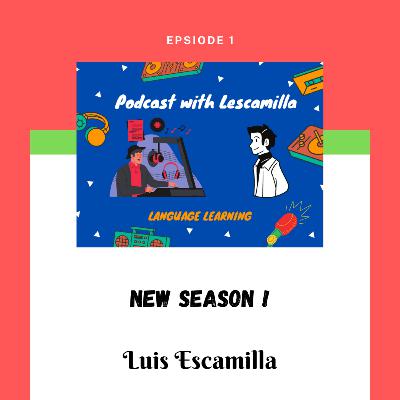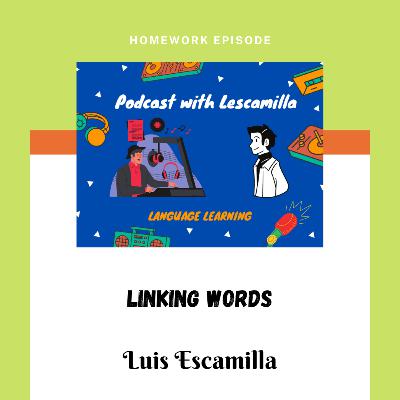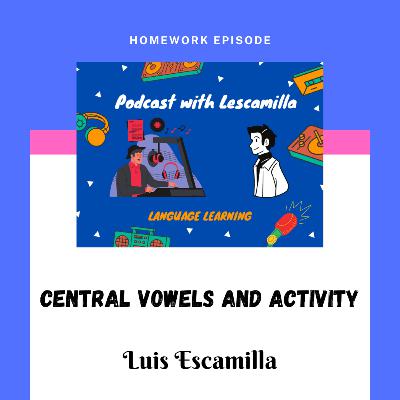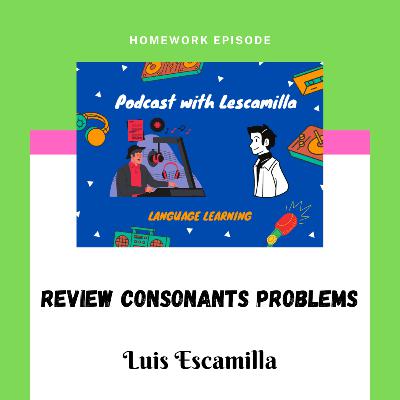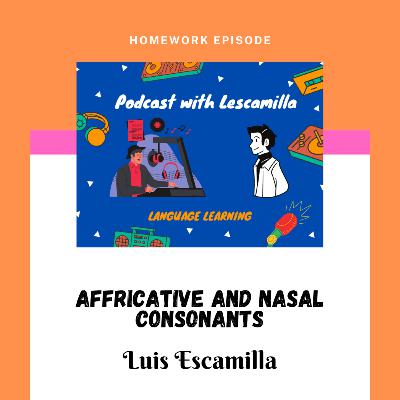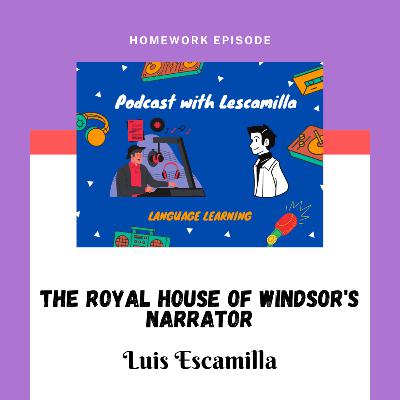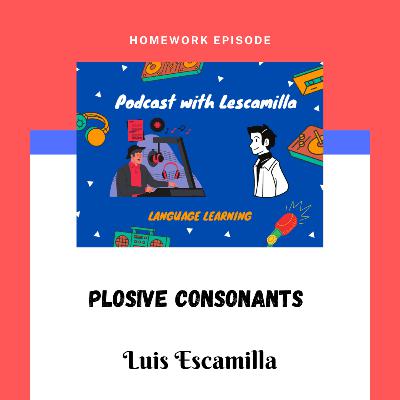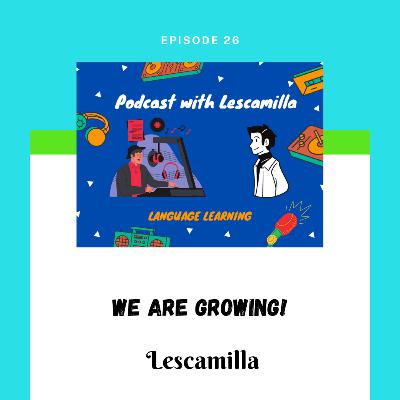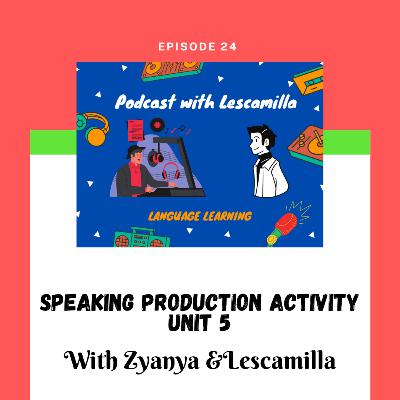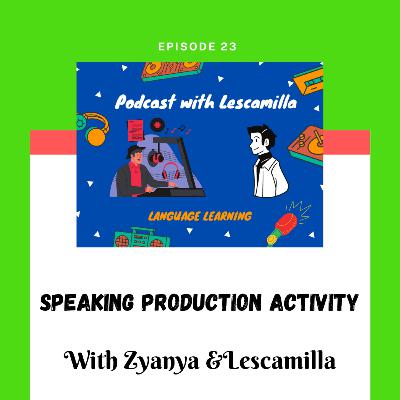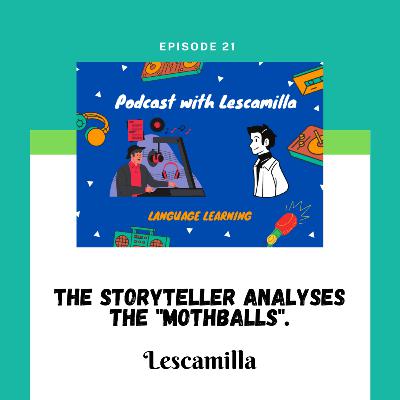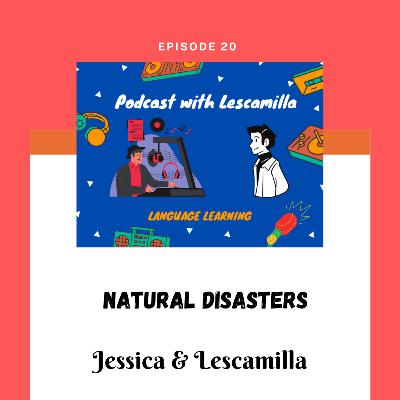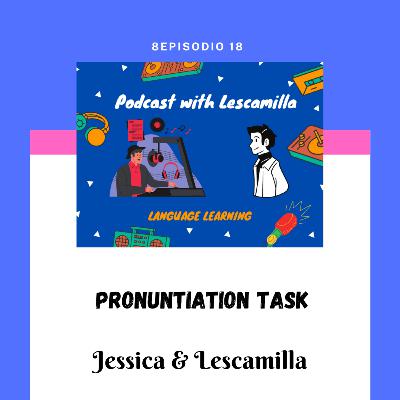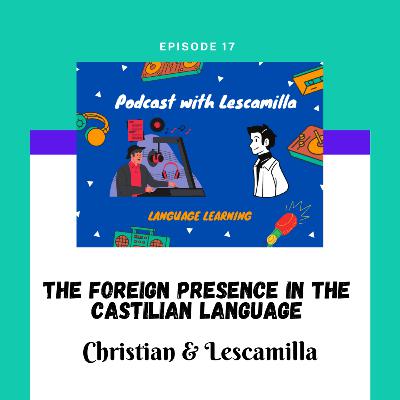Discover Podcast with a student
Podcast with a student

Podcast with a student
Author: Luis Arturo Escamilla Trejo
Subscribed: 0Played: 7Subscribe
Share
© Luis Arturo Escamilla Trejo
Description
Here is a new podcast where you can practice your listening in English with different topics where you will hear new vocabulary that it will improve your languages skills!
36 Episodes
Reverse
This, that I am going to tell you, is really recently by the way. Two weeks ago, my mom and my uncle decided to do the groceries together in a supermarket, as that day is usually not so crowded. Therefore, they had gone over there and they had planned to do the shopping really swiftly. They accomplished that goal, but it was that decision that made this tragedy. Do you want to hear this anecdote?
My new accounts:
IG: lescamilla_
FB: Lescamilla
This is the last activity of the semester.
When school and life merge, it can trigger a wide range of reactions that can be a fortune bounty or a disgrace, so we need to talk about all the issues that are going on in our lives.
My socialnetworks are here:
https://linktr.ee/lescamilla
In this episode I connected words to sound together.
This audio is for homework speaking out loud some sentences with diphthongs.
This homework has a text of Shakespeare.
This activity is about the review of consonants problems as a homework.
This is a audio speaking out loud four sentences with fonetic sounds for homework.
In this episode, I read the voice narrator to interpret his voice for a homework.
This is a recording with 4 sentences read about fricative consonants by Luis Escamilla
This activiy is for the activity: Plosive Consonants.
Would you find it excellent to implement the same topic in several languages, so that you can understand everything that is explained in it?
Would you like to get to know my four projects I have so far?
If so, I invite you to get to know my repertoire of podcasts, stay with me to get to know them.
What if you know that some vocables are often used as synonyms, when perhaps they are not employed correctly? Are you curious which words we are going to review, analyse and describe? If you are, stay until the final of the video for learning how to use them the right way.
This day, I am require to touch one topic that is really crucial, as we have been talking in previous episodes about the Spanish language history, also another tongues that are related with it, such as French, Rumanian, Catalan, among others, and has influence in other dialects like Chabacano or Chamarro, but we have never explained the topic of what it is a “idioma”, “lengua”, “lenguaje”, “dialecto”, and “lenguaje”.
You can follow me on my social networks that are here on the site, but if you tune in on another platform, I'm on Facebook, Twitter, YouTube like: Podcast with a student. While on Instagram I'm on as: Podcast with lescamilla. My personal social networks are @Lescamilla_o for Instagram, Facebook: Lescamilla y TikTok: @Podcastwithlescamilla.
Here, my friend Zyanya and I made an example of the Cambridge exam.
Here, my friend and I made a cambridge exam practice for my school
Do you like to read short plays? Do you like to read playwrights and writers to encourage reading their works? Do you like everyday themes from the time of the Mexican colony? If so, join me in this new episode of Storytellers, describing and analysing Sor Juana Inés de la Cruz.
Today I am back with another episode of: Storytellers, so I'll be telling you about who our playwright Sor Juana Inés de la Cruz was and her most famous play: "Hombres necios que acusáis a la mujer" (Foolish men who accuse women), which by the way, her redondilla was on the two hundred Mexican pesos banknote.
When uncertainty merges with meanness, or greed, dismal stories emerge, such as the one you can read in this dramatic text called Bolitas de Naftalina (Mothballs of Naphthalene). This story was written by playwright Tristana Landeros in 2004. The play was the winner of the First Express Playwriting Competition of the International Playwriting Week.
Would you be interested in a short summary of the writer? In turn, would you like to hear a short summary of the work, more analysis of it? If so, stay with me and listen to what this narrative is about.
You can follow me on my social networks which are here on the site, but if you tune in through another channel, I am on Facebook, Instagram, Twitter, as well as YouTube as: Podcast with a student.
And my personal Facebook and Instagram channels are as follows: for IG: lescamilla_ and for FB: Lescamilla.
Hello everybody! I am Jess Estrada, and we are here one more time to practice our pronunciation! And today, we have acquired new vocabulary related to natural disasters. Before saying to you, which words we have chosen, I require to present my friend for this practice conversation. Salute to everyone Luis. Greeting everyone! My name is Luis Escamilla, and I am content to be with you Jess here to rehearse my vocabulary and accent with these new terms! Thanks Luis to be here. Now, I need to read these new designations that we are going to use them! • Hurricane • Tidal wave • Warning • Casualties • Hailstones • Flash flood • Eye of hurricane • Havoc • Rangers • Thunderstorm So, let us start! Luis: Jess, could you turn it to Channel “BBC News”, please? Jess: Of course! But what is it happening in the news? Luis: I have just read in my mobile phone that there is a hurricane near Puerto Rico! Jess: Geez! Is your family not in a trip over there, is it? Luis: Unfortunately, they are in San Juan. I hope they have already heard the warning reports! Please, turn up the volume to hear more clearly. Jess: No worries, everything is going to be all right! *Hearing the news in Spanish* Jess: Oh no! The eye of hurricane invaded the totally of Puerto Rico! Luis: It seems that the island is in the middle of the storm! Over there seems that the hurricane ripped through San Juan causing havoc! Jess: The lady of the news has said that the thunderstorm caused a lot of havoc! She said that there is not electricity to communicate, therefore they are not sure about all the casualties in the island! Luis: I am worried as I do not know anything of them! The host of the news is saying that the flash flood is in everywhere! And now she has said, it is already raining hailstones! Jess: We need to pray for them, but I hope that the rangers are protecting your family! What the heck?! Now it is a warning spot that could be a tidal wave! Could this be worse that this?! Luis: No, this is impossible! Maybe they have battery in their mobile phone! I will call them asap! *Calling* Luis: Mom? Are you save!? Jess: Why are you so concerted? We are now in Colombia celebrating! Luis: Why did you not call before!
This task is for practicing our English language!
The Castilian language had contact with another European languages during its consolidation as a tongue, as it was expected, that not only left sequels in each of them, but also like the languages are alive having exposure with others and they influence them mutually, they borrow linguistic forms, some words cross to the other language, sentences and ever sayings, that makes an effortlessly communication between all the population.
Are you attracted to know which languages influenced the Castilian language? Which words were incorporated of those languages? If you are, let us hear this new episode! Wait until the final of the chapiter for knowing all of them. But before, do not forget subscribing to this podcast.
Welcome back to “podcast with a student” in the English section, and with me lescamilla.




